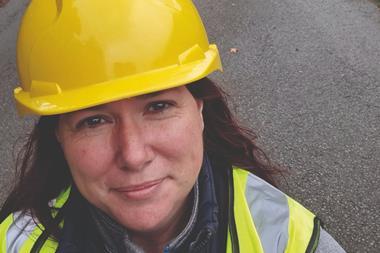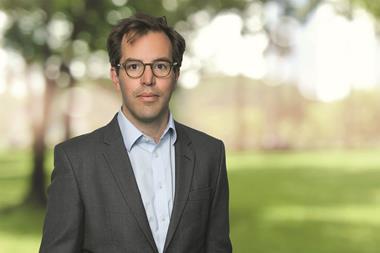As another slightly unusual year begins, all of us, with the possible exception of shareholders in companies producing LFT and PCR tests, yearn for the end of the pandemic and a return to normality, but no group perhaps more so than university students.

They have endured a very restricted and different university experience for nearly two years, with online courses, being constrained to accommodation for long periods and having few chances to participate in clubs and societies, or enjoy a social life.
This cannot in any way be seen as a positive, can it? Well, definitely not for the current student body, who deserve huge credit for handling everything thrown at them. But arguably, student accommodation could benefit from the impact of Covid.
The profile of student accommodation within the overall student experience has never been as high. Think of the media coverage during lockdown: it focused not on empty lecture theatres, but more on photos of halls of residence windows displaying students’ creative communications – they didn’t all read “send beer”.
The pandemic has required university management to consider the needs of all of its students, the first concern being where they are living. The usual focus on first years in halls was replaced with providing as much as possible for all students, whether they lived in a university-managed hall, a private-sector hall, an HMO or at home.
The importance and profile of the ‘living’ experience, intertwined with the ‘academic’ experience, to create an overall student experience, has risen.
So how might this affect purpose-built student accommodation (PBSA)? I agree strongly with a comment made at the December launch of the NUS/Unipol Accommodation Costs Survey: that we need to differentiate between university-owned and private student accommodation, rather than having them under one umbrella – PBSA. As someone who has been on both sides of the equation, I can confirm that there are key differences.
Close collaboration
Now is the opportunity for the private and university sectors to work even more closely together. Clearly some providers already have strong working relationships with local universities, but if the living experience is to have such a high profile within the student experience, it is essential there is alignment on such imperatives as student welfare support and residence life programmes.
Perhaps measures of success in private halls need to be rethought. Clearly, having a full building is an essential ingredient for investor success, but the real KPI is whether a PBSA resident successfully completes their academic course and progresses to their next stage, whether that be further study or the workplace.
Despite the emphasis on the benefit of a degree being measured purely in terms of financial return, university life is about so much more than the course studied and the pandemic has reinforced this truism.
Today’s students will still walk out of their universities with a well-earned degree, but many will not have gained as much as their predecessors (or hopefully their successors) in relation to the other parts of the university experience that help mould them for their future. Those involved in all aspects of student accommodation should remember that they play a significant role in shaping tomorrow’s graduates.
Paddy Jackman is director of university partnerships at Campus Living Villages UK
































No comments yet